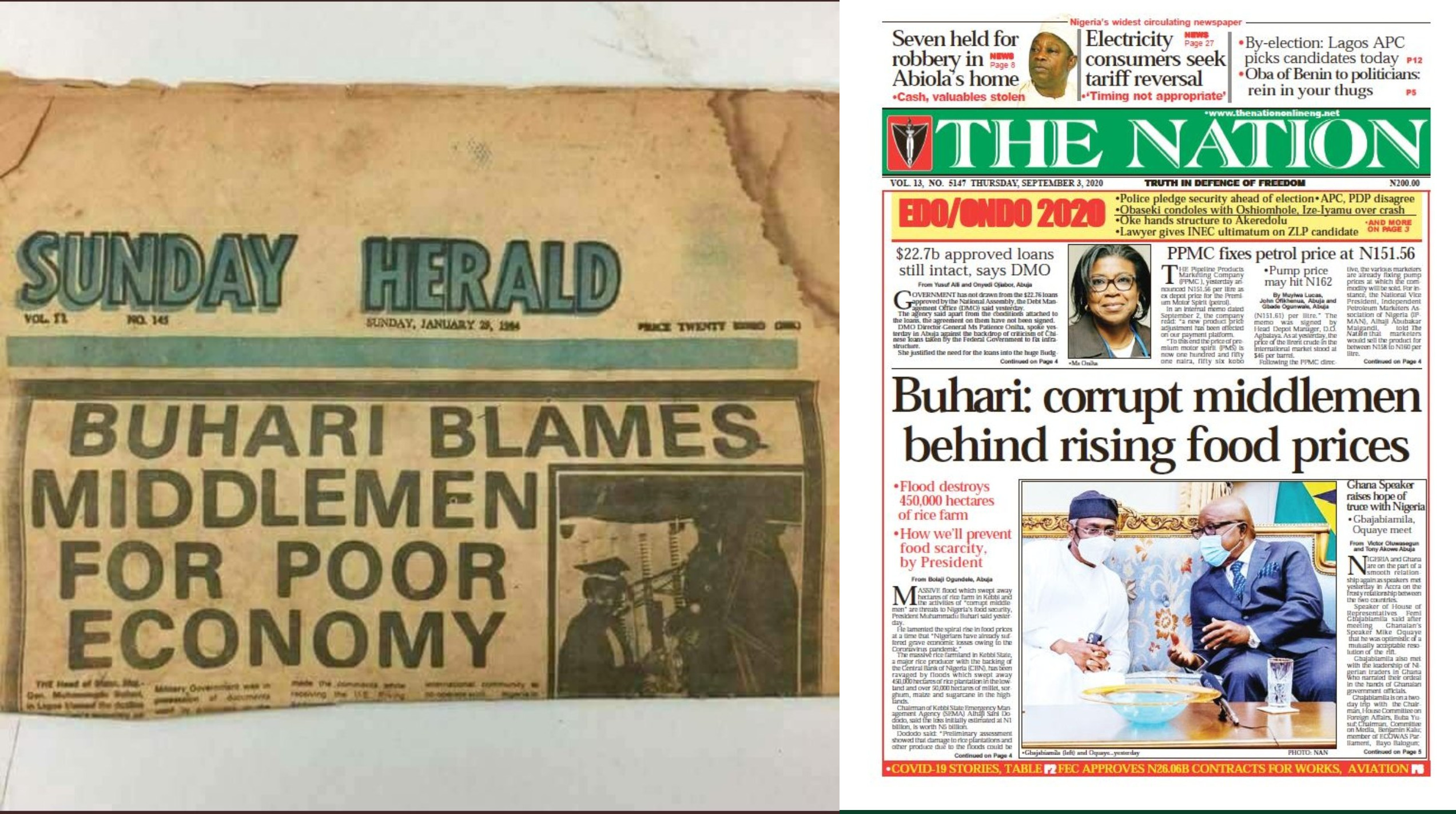Critics of President Muhammadu Buhari base their criticism on two main pillars: his slowness to take action and propensity for blaming others when things go awry.
Such critics may just have one more weapon in their arsenal as a newspaper clipping has emerged of Buhari blaming middlemen for the poor economy under his regime back in 1984.
A close observation of the Sunday Herald clipping showed that it was published on Sunday, January 29, 1984, when Buhari was Head of State.
The headline of the lead story for the day read, “Buhari blames middlemen for poor economy”.
The newspaper circulated after the president again blamed middlemen for rising food prices in the country 36 years after.
In images circulating online, critics of the president placed the old newspaper clipping side by side with the Thursday, September 3, 2020 edition of one of the national dailies, The Nation.
The headline of the lead story read, “Buhari: corrupt middlemen behind rising food prices”.
In a Wednesday statement titled, “How President Buhari Is Tackling Food Inflation In The Country”, presidential spokesman Garba Shehu said that his boss expressed the administration’s concern about the sudden spiral of food prices, at a time when the economy is already mired in a slowdown occasioned by the global coronavirus situation.
Read Also: “Tales by moonlight” – Nigerians slam CAN chairman over Fani-Kayode prophecy
While assuring that measures were being put in place to remedy the situation, the president was quoted to have said: “While Providence has been kind to us with the rains and as such an expectation that a bumper harvest would lead to crashing of food prices and ease the burdens on the population, government’s concern is that the exploitative market behaviour by actors has significantly increased among traders in the past few years and may make any such relief a short lived one.”
He further said that 2020 has “indeed tested us in ways that globalisation has never been tested since the turn of the century. These challenges have disrupted lives and supply chains all over the world, and Nigeria has not been spared.



Leave a Reply